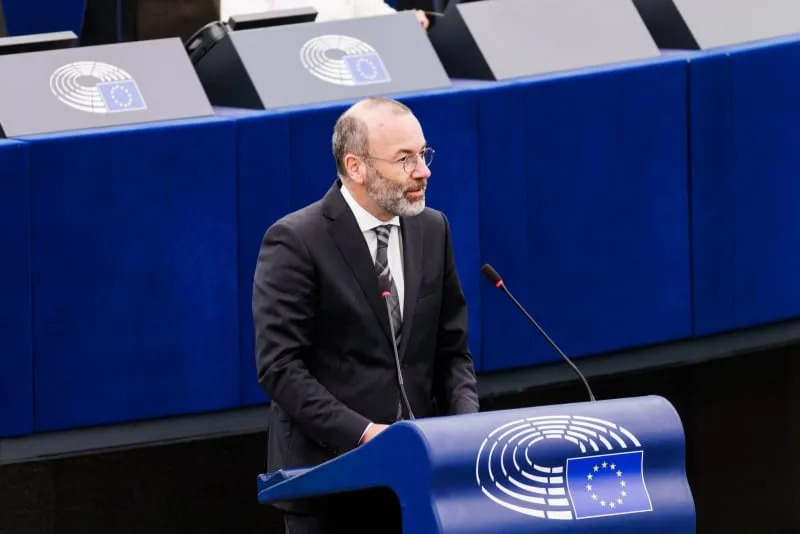World
EU Lawmaker Advocates for Syrian Refugees to Return Home

Manfred Weber, leader of the conservative European People’s Party (EPP) in the European Parliament, has called for Syrian refugees to return to their home country. In comments published on March 3, 2024, in the mass-circulation newspaper Bild, Weber emphasized the need for those who can contribute to the rebuilding of Syria to leave Germany and Europe.
Weber stated, “We provide help in emergencies, but when the war is over, you have to return to your home country.” He acknowledged the complexities of the situation, urging against strict deadlines for repatriation. “If deportations in the first month are not possible because parts of Syria are still completely destroyed, then it might work the following month,” he added. “But the principle must ultimately be implemented.”
While advocating for returns, Weber recognized the contributions of many Syrians who have integrated into the German labor market. He questioned whether it would be prudent to send back all Syrian refugees, highlighting that those with a migration background play essential roles in sectors such as health care.
Internal Dispute Among Conservatives
Weber’s remarks come amid an ongoing internal debate within the conservative bloc regarding the return of Syrian refugees. Recently, Foreign Minister Johann Wadephul stirred controversy within the party after visiting a devastated suburb of Damascus. Wadephul expressed skepticism about the feasibility of large-scale voluntary returns, stating it was “barely possible” to live there with dignity due to the extensive destruction.
The discussion reflects broader tensions within the German political landscape concerning immigration policy and the future of refugees from conflict zones. As the situation in Syria evolves, the challenges of repatriation and integration remain pressing issues for policymakers.
Weber’s comments underscore a pivotal moment in Europe’s approach to refugee management, balancing humanitarian responsibilities with national interests. The debate continues as European nations navigate the complexities of post-war recovery and the role of displaced populations in rebuilding their countries.
-

 Politics2 weeks ago
Politics2 weeks agoHamas Chief Stresses Disarmament Tied to Occupation’s End
-

 Science2 weeks ago
Science2 weeks agoOhio State Study Uncovers Brain Connectivity and Function Links
-

 Entertainment2 weeks ago
Entertainment2 weeks agoMegan Thee Stallion Exposes Alleged Online Attack by Bots
-

 Science3 weeks ago
Science3 weeks agoResearchers Challenge 200-Year-Old Physics Principle with Atomic Engines
-

 Entertainment2 weeks ago
Entertainment2 weeks agoPaloma Elsesser Shines at LA Event with Iconic Slicked-Back Bun
-

 Top Stories2 weeks ago
Top Stories2 weeks agoFederal Agents Detain Driver in Addison; Protests Erupt Immediately
-

 Business2 weeks ago
Business2 weeks agoHome Depot Slashes Prices on Halloween Favorites Up to 75%
-

 Top Stories2 weeks ago
Top Stories2 weeks agoOrioles Hire Craig Albernaz as New Manager Amid Rebuild
-

 Entertainment2 weeks ago
Entertainment2 weeks agoSyracuse Stage Delivers Lively Adaptation of ‘The 39 Steps’
-

 Top Stories2 weeks ago
Top Stories2 weeks agoWill Smith Powers Dodgers to World Series Tie with Key Homer
-

 World3 weeks ago
World3 weeks agoGlobal Military Spending: Air Forces Ranked by Budget and Capability
-

 Politics3 weeks ago
Politics3 weeks agoNHP Foundation Secures Land for 158 Affordable Apartments in Denver









